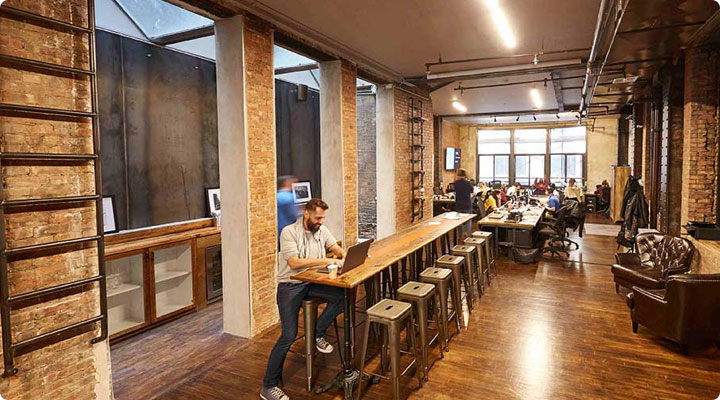Ready to see it for yourself?
One of our workspace experts will reach out to you based on your communication preferences.

Startups do not go out of business - they run out of money. Many successful companies completely bootstrap their business and do not take any VC or Angel investments.

The biggest benefit of bootstrapping is that you have to be extremely diligent with your finances from day one. When you're not used to spending more than you have, it teaches you vital lessons. For example, you should not overspend on things that are not important for your business in the long run.
Consider the following questions:
Do you need a Macbook Air when a Chromebook is half the cost?
Do you need a fancy office lease or is a coworking space a much better investment?
Does new wardrobe sound nice when working in jeans and a t-shirt doesn't affect your work?
The correct answers, of course, depend on the circumstances.
If you work in design, go for the Macbook Air. If you have a huge staff from day one, go ahead and get an office space. Need to meet with clients that expect you to be well dressed? Go ahead and invest in a nice wardrobe.
Sometimes spending money on the more expensive options makes sense but for the most part operating as a lean startup - even if you have large financing behind you - is the best strategy for long-term success.

The first and most important lesson of the lean startup methodology is getting feedback from clients with an actual product. Develop a product that solves your client's problems and improve it based on feedback. This is called your minimum viable product (MVP).
Once you have enough feedback and you are comfortable with the MVP, your startup is ready to launch. As you launch your startup, keep the feedback loop going and do not be afraid to pivot if you get stuck. A majority of successful startups pivot at some point.
Eric Ries, author of The Lean Startup: How Today's Entrepreneurs Use Continuous Innovation to Create Radically Successful Businesses, said:
“We must learn what customers really want, not what they say they want or what we think they should want.”
Another important lesson for lean startups is using A/B testing, or split testing. This is a pretty simple theory but one that your startup should stick with no matter how well you're doing financially.
In the early days, testing two different methods is easy when you have no idea - just an educated guess - on what's going to work. As you get feedback and results on what's working, it's easier to just keep moving forward with your best option. This is when you can get complacent and fall into a trap. It can be tough split testing when you know what's producing results, it seems like you're wasting time and money split testing something new that doesn't work.
But always keep split testing no matter how well your best option is doing. For example, if Facebook advertising is crushing every other PPC campaign you try, it can be easy and seem wise to simply put all your time and resources into Facebook.
The problem is that if Facebook becomes the next MySpace, you have no idea what your second best option is or how to go about it. This could destroy your marketing, sales, and revenue overnight.

Are you looking for a NYC event venue for personal or business occasions? Do you need a fresh perspective for your workday, a business address or virtual mailbox? If it’s time to level up your business and you’re looking to make some serious marketing moves, we have the answer for you!